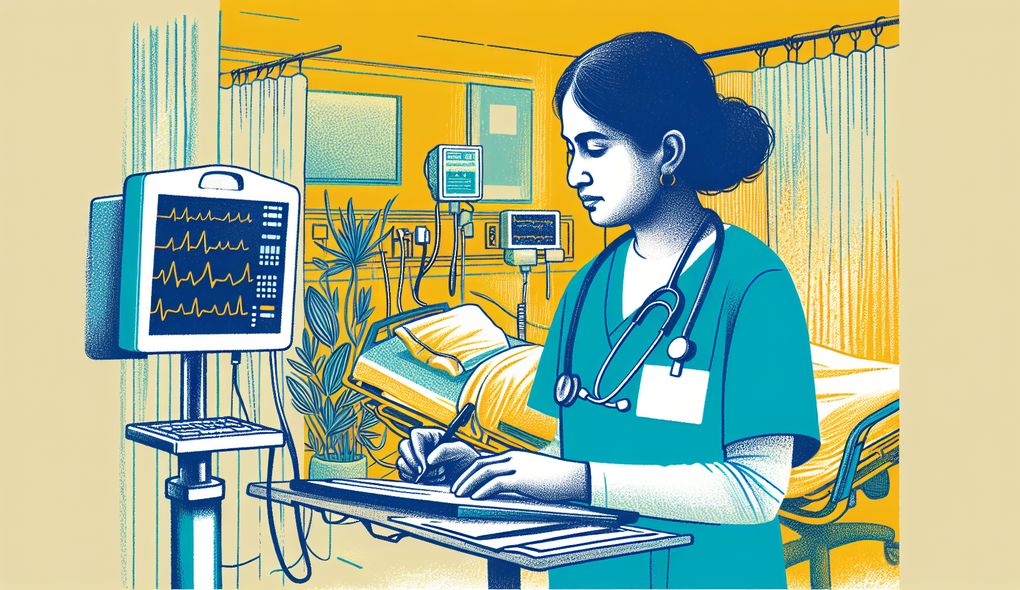What strategies do you implement to maintain accurate patient records?
INTERMEDIATE LEVEL

Sample answer to the question:
To maintain accurate patient records, I implement a systematic approach. First, I ensure that all patient information is collected and documented in a timely manner. This includes demographics, medical history, and any relevant test results. I also make it a point to update the records regularly, especially after any changes or interventions. Additionally, I pay close attention to the accuracy of the information entered, double-checking for any errors or inconsistencies. Finally, I use electronic health record systems to store and retrieve patient records, ensuring they are easily accessible to authorized personnel.
Here is a more solid answer:
To maintain accurate patient records, I have developed several strategies. Firstly, I meticulously review all documentation before entering it into the electronic health record system, ensuring the information is complete and error-free. I also conduct regular audits of patient records, comparing them with the patients' charts and orders to identify any discrepancies. Additionally, I utilize standardized documentation templates and checklists to ensure consistency and completeness in my documentation. Furthermore, I actively communicate with other healthcare professionals involved in the patient's care to verify and cross-reference information, thus reducing the likelihood of errors. Lastly, I stay updated on the latest advancements in electronic health record systems, attending training sessions to enhance my technology competence and utilize the system's features effectively.
Why is this a more solid answer?
The solid answer provides specific strategies implemented by the candidate to maintain accurate patient records, such as reviewing documentation before entering it, conducting regular audits, utilizing standardized templates, and actively communicating with other healthcare professionals. The answer also mentions the candidate's commitment to staying updated on technology advancements. However, it could provide more examples and further emphasize the importance of attention to detail.
An example of a exceptional answer:
Maintaining accurate patient records is crucial, and I have developed a comprehensive approach to ensure their integrity. Firstly, I perform a thorough review of the patient's medical history to gather all relevant information and verify its accuracy. During documentation, I prioritize attention to detail, double-checking every entry for completeness and correctness. To enhance the usability and comprehensiveness of the records, I adopt a standardized approach, utilizing electronic templates that prompt me to include essential elements. Additionally, I actively engage in interdisciplinary communication, collaborating with other healthcare professionals to clarify any ambiguous information and address potential discrepancies. Moreover, I participate in quality improvement initiatives, attending meetings and trainings to stay updated on best practices for accurate documentation. Lastly, I conduct periodic self-audits to assess my own documentation practices, striving for continuous improvement and adherence to regulatory standards.
Why is this an exceptional answer?
The exceptional answer demonstrates a comprehensive and proactive approach to maintaining accurate patient records. The candidate mentions gathering and verifying information, attention to detail, using standardized templates, engaging in interdisciplinary communication, participating in quality improvement initiatives, and conducting self-audits. The answer also highlights the candidate's commitment to continuous improvement and adherence to regulatory standards. However, it could provide more specific examples and elaborate on the outcomes achieved through these strategies.
How to prepare for this question:
- Familiarize yourself with the electronic health record system commonly used in the healthcare facility
- Practice reviewing and double-checking documentation for accuracy and completeness
- Research and understand the regulatory standards and best practices for maintaining accurate patient records
- Develop good communication skills to effectively collaborate with other healthcare professionals
- Stay updated on advancements in electronic health record systems and attend relevant training sessions
What are interviewers evaluating with this question?
- Attention to detail
- Documentation practices
- Technology competence

